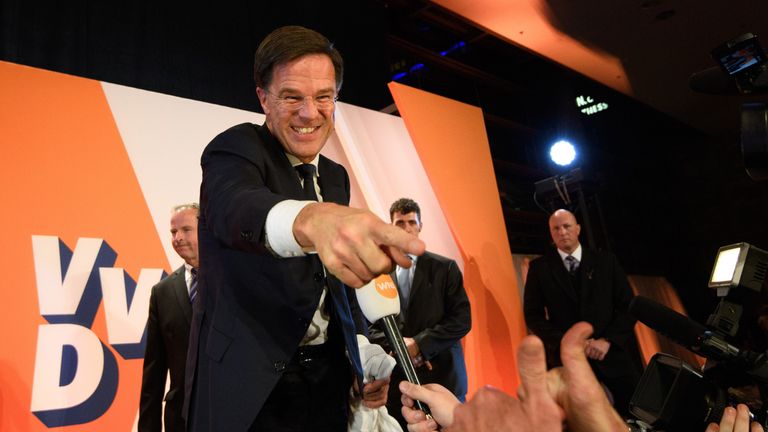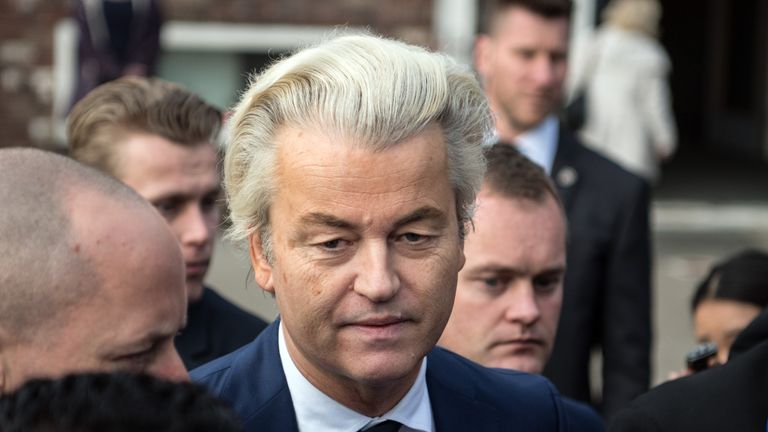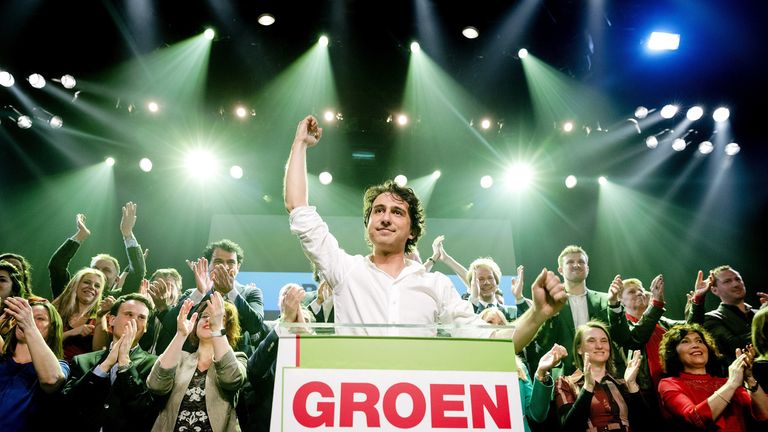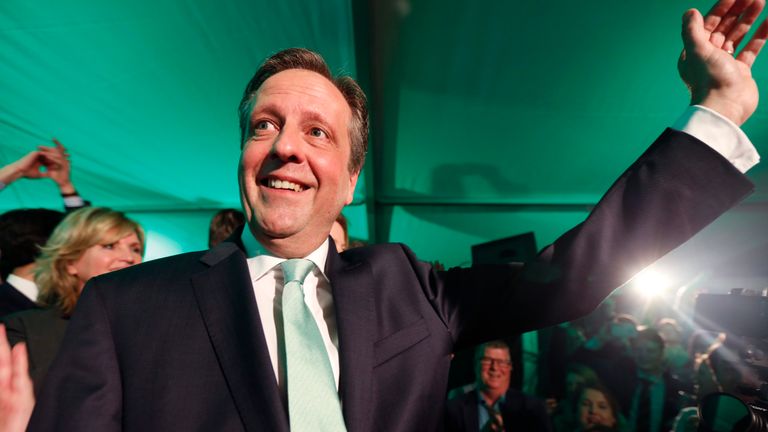In Netherlands liberal democracy wins but populism on the rise
Gains among smaller parties in the Dutch elections show voters reject the politics that brought about Brexit and Trump's victory.
Thursday 16 March 2017 19:36, UK
The polls, the pundits and the establishment parties across Europe had wondered if the Netherlands would be the next domino to fall.
Last year saw Brexit then Trump.
Was the Dutch vote to be the next shock? A far-right win in the liberal, inclusive Netherlands? The third domino which would knock on to the French election, then Germany?
The French and German votes are still to come, but the Dutch seem to have bucked the populist trend.
The incumbent Prime Minister and victor of the night, is calling it the moment liberalism fought back.
"This is an evening where after Brexit and the American elections, a populist has not won the day," Mark Rutte told me at his victory party.
Mr Rutte had been more than worried that he'd lose out to Geert Wilders, the far-right, anti-Islam, anti-immigration, anti-EU candidate.
It turns out he needn't have fretted too much. In an election with a record turnout of over 80%, his centrist VVD party secured the largest share of power.
But look carefully at the results. Mr Wilders didn't do too badly. He increased his share of the vote from the 2012 elections from about 10% to 13%; not much, but Mr Rutte's vote went down from 2012.
Mr Wilders' populist message resonated among a proportion of voters who are fed up with the mainstream and who worry about an erosion of Dutch identity.
With an extraordinary 28 parties on the ballot paper, the electorate has been confused - who to choose? The vote has been split.
Tied in second place, three very different parties: Wilders' far-right PVV, the conservative CDA and the liberal D66.
As victor, Prime Minister Mark Rutte must try to form a coalition with them. He's already ruled out working with Wilders. "No, impossible" he told me. Months of tricky coalition building will follow.
There are two big winners from this election: Jesse Klaver, the 31-year-old leader of the Groenlinks Party and Alexander Pechtold, the D66 leader.
Both are liberal, progressive, pro-EU and they secured the biggest increase in share of the vote since the last elections in 2012. Jesse Klaver quadrupled his number of seats.
A huge loser is the Labour Party (PvdA), down according to the exit polls from 29 seats in 2012 to just 9 this time.
But the takeaway for establishment governments across the European Union is a clear message: the electorate, in the Netherlands at least, still believes a form of liberal democracy trumps populist nationalist politics.
The next test? France in May when far right Marine Le Pen seems set to battle it out against centrist Emmanuel Macron.







